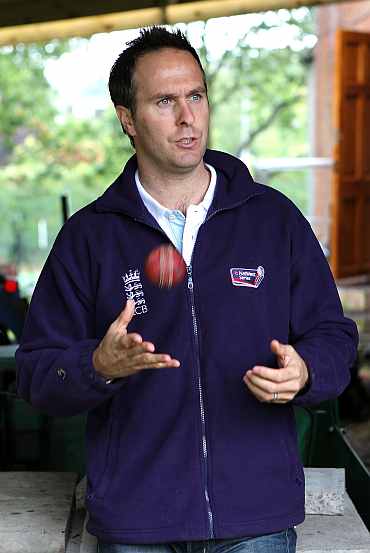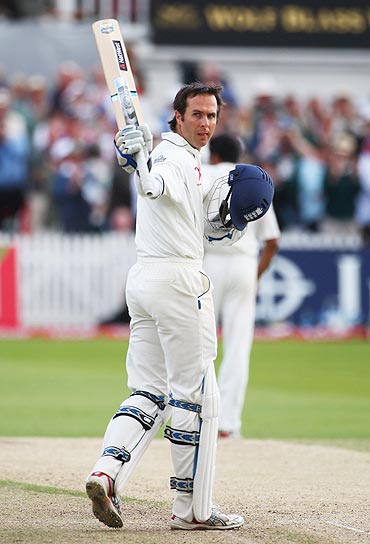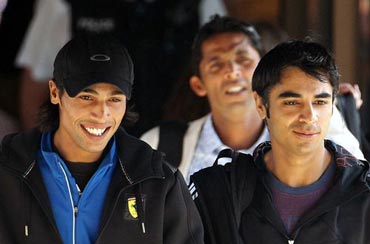 | « Back to article | Print this article |
Vaughan questions Pakistan's 2000 Karachi Test loss
A day after Salman Butt and Mohammed Asif were convicted for spot-fixing, former England skipper Michael Vaughan suspects that a Test match against Pakistan in 2000 might have been fixed.
Vaughan said Pakistan had surrendered from a strong position.
- Pakistan spot-fixing scandal: timeline
- Uncovered: Who is Mazhar Majeed
"I now look back on matches I played in and wonder if strings were being pulled behind the scenes. For instance, go back to the Test we won against Pakistan in Karachi in December 2000.
"They collapsed from a strong position to leave us a small total to chase, which we did as night descended. It was a very surreal atmosphere and I remember feeling that there was something not right about it at the time. Was it just a dodgy wicket or were there other forces at play?," Vaughan wrote in his coloumn for Daily Telegraph.
"You find yourself remembering odd incidents in other matches -- moments when batsmen have run themselves out first ball or triggered collapses with ridiculous shots."
Vaughan said not only the no-balls at Lord's Test in 2010 but other instances could have been influenced.
".... but the temptation now is to go back and question everything in the light of what happened at Lord's last year.
Stuart Broad scored 169 in that Test match, but I wonder, after everything that has happened, how confident he is that his opponents were giving their all," he wrote.
'There are just too many games to keep an eye on'
Vaughan said despite the culprits being brought to justice with the conviction of Butt and Asif, it would not possible to eradicate the menace for once and all.
"You will have lost your mind if you contemplate fixing cricket in England in the future, but it is wishful thinking to believe it will eradicate the problem from all aspects of our sport around the world," he wrote.
Vaughan said the amount of cricket being played these days is the biggest hindrance in keeping a regular watch over all the games.
".... there are so many games played all over the world and shown live on television these days -- Tests, One-dayers, county matches, IPL -- it is an impossible patch for the International Cricket Council to police. There are just too many games to keep an eye on," he said.
'Employ former players in ICC's Anti-Corruption Unit'
Vaughan also stressed that the limited knowledge of the game among the officers of the ICC's Anti-Corruption Unit is a big impediment in spotting unusual things happening in a cricket match.
Vaughan thus advocated the need to have former players in the ACSU for the better surveillance of matches.
"It is a fact that the ACU is run by former police officers who have personally told me in the past they do not fully understand the game. They know about corruption and how to gather telephone evidence and emails but do not have a clue about spotting when something untoward happens on a cricket pitch," Vaughan said.
"The ACU needs to start employing former players who know the game and can sense when they see something that is not quite right. With so many facets of the game to manipulate you need a division of the ACU with the power to police events on the field.
'World cricket needs Aamir and Asif'
"It would be the fixing equivalent of the match referee. These ex-players could study footage and, if they spot anything untoward, could flag it up to the ICC," the former captain wrote.
Vaughan said he has always been in favour of strict punishment for Salman Butt and Mohammed Asif, who have been found guilty of spot-fixing, but still felt that world cricket needed bowlers Asif and Mohammad Aamir.
"The sad part of this case is that world cricket needs Aamir and Asif. There are just not enough good fast bowlers around. Aamir is a teenager and perhaps he will get another chance. He will be a massive addition to the game when he comes back and hopefully living proof that fixing does not pay," he wrote.



